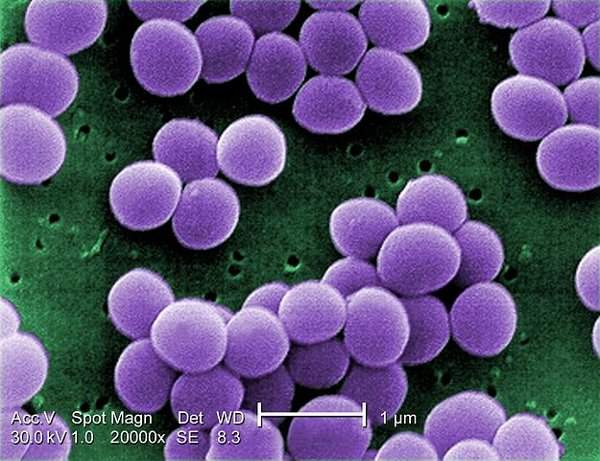

GSK reports positive OS results from Phase III trial of combination melanoma drug
GlaxoSmithKline (GSK) reported positive overall survival (OS) results from a Phase III COMBI-d trial of dabrafenib (Tafinlar) and trametinib (Mekinist) combination in patients with BRAF V600E/K mutation-positive metastatic melanoma.

Discover B2B Marketing That Performs
Combine business intelligence and editorial excellence to reach engaged professionals across 36 leading media platforms.
The results show a statistically significant reduction in the risk of death for this combination therapy compared to dabrafenib monotherapy in these patients.
Data from the trial also showed that the safety profile was consistent with the profile observed to date for the combination and no new safety concerns were observed.
In the coming months, the final data from this Phase III trial will be submitted to regulatory authorities for review.
Novavax begins Phase I Ebola GP Vaccine clinical trial in humans

US-based biopharmaceutical firm Novavax started enrolment in a Phase I clinical trial of its Ebola virus glycoprotein (GP) recombinant nanoparticle vaccine candidate adjuvanted with Matrix-M (Ebola GP Vaccine) in healthy subjects.

US Tariffs are shifting - will you react or anticipate?
Don’t let policy changes catch you off guard. Stay proactive with real-time data and expert analysis.
By GlobalDataThe company began development of its Ebola GP Vaccine shortly after the publication of the genetic sequence of the 2014 Ebola Makona strain, which is responsible for the current Ebola outbreak in West Africa.
The randomised, observer-blinded, dose-ranging Phase I Ebola GP Vaccine clinical trial is conducted in Australia. During the trial, each subject will be given two intramuscular injections, one each on study days zero and 21.
Amgen’s Phase III ABP 501 trial in rheumatoid arthritis patients meets endpoints

US-based biopharmaceutical firm Amgen reported positive results from its Phase III trial of biosimilar candidate ABP 501 compared with Humira (adalimumab) in patients with moderate-to-severe rheumatoid arthritis.
The company said that the randomised, double-blind, active-controlled trial met its primary and key secondary endpoints.
The trial’s primary endpoint compared the ACR20 measurements (20% or greater improvement in ACR assessment) at week 24 and it was seen that ACR20 was within the prespecified margin for ABP 501 compared to adalimumab, showing clinical equivalence.
Roche reports positive results from Phase III trial of Gazyva to treat iNHL
Roche reported positive results from the Phase III GADOLIN trial of a monoclonal antibody Gazyva (obinutuzumab) in people with indolent non-Hodgkin’s lymphoma (iNHL) who are refractory to MabThera/Rituxan (rituximab) treatment.
An independent data monitoring committee determined that the trial met its primary endpoint early.
The trial showed that people lived significantly longer without disease worsening or death (progression-free survival, PFS) when treated with Gazyva plus bendamustine followed by Gazyva alone, compared to bendamustine alone.
As the Gazyva arm showed high level of benefit compared to the bendamustine arm, the trial was stopped prior to its protocol-specified final analysis.
Favipiravir shows efficacy in Ebola treatment, says ALIMA
The experimental drug favipiravir could improve survival rate in Ebola patients, if administered at earlier stages of the disease, a new study by the Alliance for International Medical Action (ALIMA) claimed.
Led by the French National Institute of Health and Medical Research (Inserm) scientists, the trials began at two Ebola treatment centres in Guinea, West Africa, in December 2014, with an aim to assess the efficacy of the treatment.
According to the newly released preliminary results of 80 patients, mortality rates fell from 30% to 15% in patients with a low to moderate Ebola count who received the drug during a three-month period before the start of trial.
Galapagos reports positive results from Phase I trial of GLPG1690 to treat pulmonary disease
Belgian clinical stage biotech firm Galapagos reported positive results from its Phase I trial of its first-in-class molecule, GLPG1690, for the treatment of patients with pulmonary disease.
GLPG1690 is being developed by the company in collaboration with Janssen Pharmaceutica.
The trial was designed to assess the safety, tolerability, pharmacokinetics and pharmacodynamics of oral single and multiple ascending doses of GLPG1690 in 40 healthy volunteers.
Pluristem’s reports positive results from NIH’s trial of PLX-R18 cells to treat bone marrow
Israel’s Pluristem Therapeutics reported positive results from a recently completed trial that was designed to evaluate PLX-R18 cells to treat bone marrow damaged by exposure to high levels of radiation, such as can occur after a nuclear disaster.
Conducted by the US National Institutes of Health (NIH), the trial showed that injection of PLX-R18 cells into muscle, compared to a placebo, improved the recovery of white blood cell, red blood cell and platelet levels in animals exposed to high levels of radiation.
In the trial, 256 mice were randomised to be injected intramuscularly with PLX-R18 or placebo after total body irradiation, or PLX-R18 or placebo after sham irradiation.

Theravance begins enrolment in telavancin Phase III trial for Staphylococcus aureus bacteremia
US-based Theravance Biopharma enrolled first patient in its Phase III registrational trial of telavancin, a once-daily dual-mechanism antibiotic, to treat Staphylococcus aureus bacteremia.
The multi-centre, randomised, open-label trial is designed to support regulatory filing of the product for the treatment of these patients.
Currently, there are only two approved antibiotics to treat Staphylococcus aureus bacteremia and treatment failure is common in these patients, particularly when the infection is methicillin-resistant Staphylococcus aureus (MRSA).





